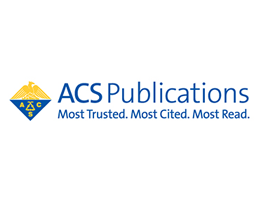FOR IMMEDIATE RELEASE | May 16, 2022
Recent advances in venom therapeutics
Using compounds from venom — poisons intended to hurt or kill — as therapeutics might seem counter-intuitive. Nevertheless, researchers are identifying venom proteins that could help treat a variety of medical conditions. Below are some recent papers published in ACS journals that report insights into the medical uses of these proteins. Reporters can request free access to these papers by emailing newsroom@acs.org.
“Telocinobufagin Has Antitumor Effects in Non-Small-Cell Lung Cancer by Inhibiting STAT3 Signaling”
Journal of Natural Products
Feb. 24, 2022
ChanSu is a traditional Chinese medicine made from defensive venoms secreted by the skin glands of certain toads. Researchers found that a compound from the venom, telocinobufagin, has antitumor effects in human non-small-cell lung cancer cells and a mouse xenograft model by inhibiting a cell signaling protein called STAT3.
“Synthesis and Pharmacological Characterization of Visabron, a Backbone Cyclic Peptide Dual Antagonist of α4β1 (VLA-4)/α9β1 Integrin for Therapy of Multiple Sclerosis”
JACS Au
Nov. 24, 2021
Inspired by sequences from a snake venom protein that blocks integrin-mediated cell adhesion, researchers synthesized a cyclic peptide called visabron and investigated it for the treatment of multiple sclerosis (MS). In a mouse model, visabron had therapeutic effects similar to current immunosuppressant drugs used to treat MS, but with potentially fewer side effects.
“Synthetic Peptide Derived from Scorpion Venom Displays Minimal Toxicity and Anti-infective Activity in an Animal Model”
ACS Infectious Diseases
Aug. 31, 2021
Multidrug-resistant bacteria are becoming a global health problem, and effective new antimicrobials are desperately needed. These researchers modified an antimicrobial peptide from scorpion venom to make it more effective at killing multidrug-resistant bacteria in a mouse model while being less toxic to human cells.
“Pharmacological Inhibition of the Voltage-Gated Sodium Channel NaV1.7 Alleviates Chronic Visceral Pain in a Rodent Model of Irritable Bowel Syndrome”
ACS Pharmacology & Translational Science
June 7, 2021
Irritable bowel syndrome (IBS) is a chronic gastrointestinal disorder characterized by abdominal pain, bloating and altered bowel habits. The researchers identified a peptide from tarantula venom that potently inhibits a sodium channel in the gut, alleviating chronic abdominal pain in a mouse model of IBS.
To automatically receive press releases from the American Chemical Society, contact newsroom@acs.org.
Note: ACS does not conduct research, but publishes and publicizes peer-reviewed scientific studies.
Media Contact
ACS Newsroom
newsroom@acs.org


